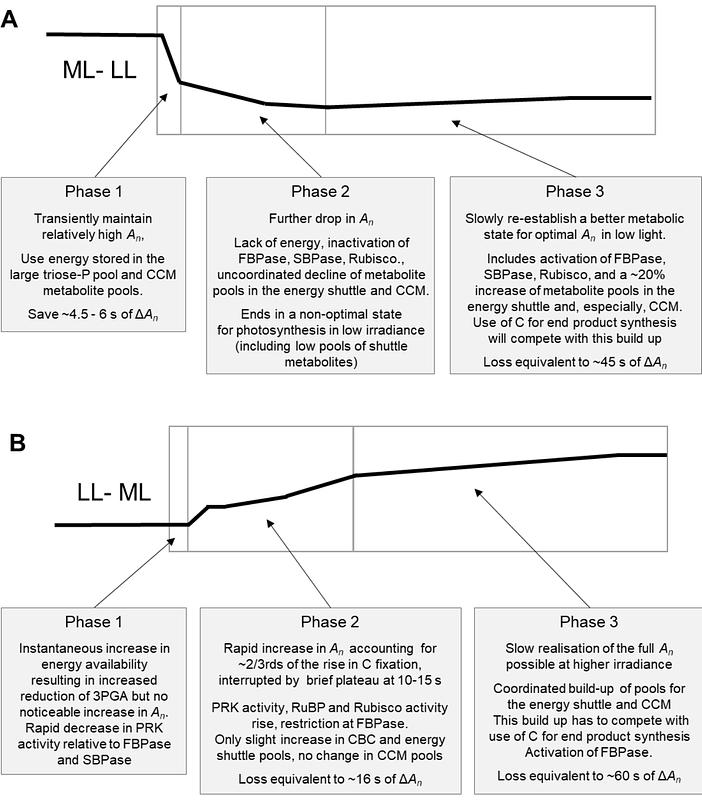Metabolite profiling reveals slow and uncoordinated adjustment of C4 photosynthesis to sudden changes in irradiance

Metabolite profiling reveals slow and uncoordinated adjustment of C4 photosynthesis to sudden changes in irradiance
Arrivault, S.; Medeiros, D. B.; Sales, C. R. G.; Guenther, M.; Kromdijk, J.; Fernie, A. R.; Stitt, M.
AbstractIn the field plants continually experience changes in irradiance. Research in C3 species has revealed that whilst the Carbon-Benson cycle (CBC) adjusts rapidly to changing irradiance, there is substantial loss of photosynthesis efficiency due to slow adjustment of energy dissipation and stomatal conductance. Less is known about the impact of changing irradiance on photosynthetic efficiency in C4 species. We have subjected maize to a sudden increase or decrease of irradiance in the non-saturating range and performed time-resolved measurement of photosynthetic rate and profiling of metabolites from the CBC, the CO2-concentrating mechanism (CCM), photorespiration and end-product biosynthesis. After a decrease in irradiance, photosynthesis is transiently buffered by energy delivered by transformations in the large pools of metabolites that are involved in intercellular shuttles. During the subsequent decline in photosynthesis, metabolism transitions to a sub-optimal state for photosynthesis in low irradiance, from which it takes several minutes to recover. One reason is that the large pools of metabolites that facilitate intercellular shuttles run down too far and it takes time to build them up again. After an increase in irradiance, there is a long delay until a new steady rate of photosynthesis is achieved. The delay is partly due to regulation of enzymes in the CBC and CCM, but also to the need to build up large pools of metabolites to drive intercellular shuttles. In addition, in both transitions, transient imbalances between the pumping and utilization of CO2 lead to increased back-leakage of CO2 or to photorespiration, further decreasing photosynthetic efficiency.